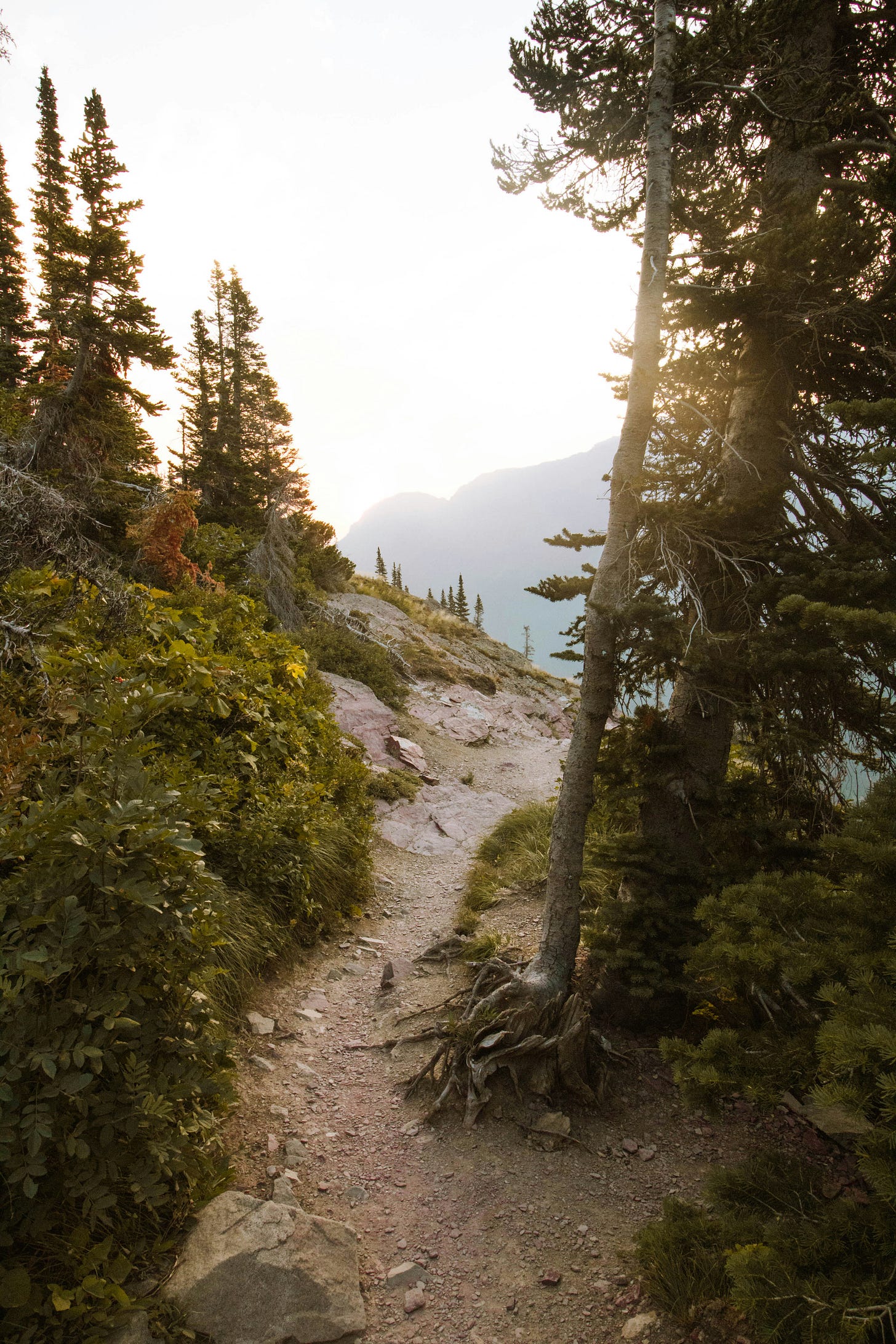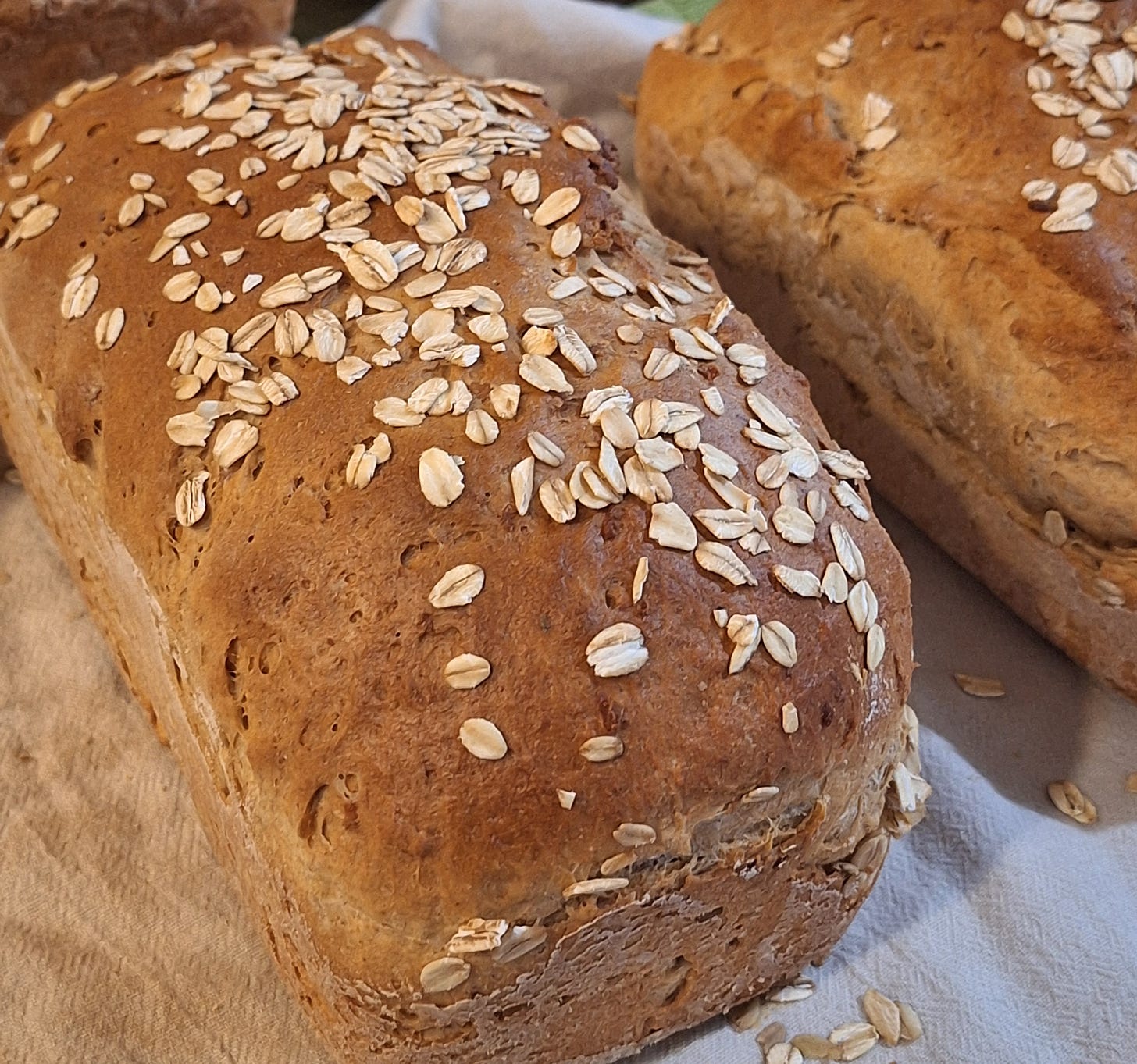Peeking out the window for the umpteenth time, I watched for the visitors.
“You don’t think they could get lost back there, do you?” I asked anxiously.
Trail maintenance was one of those things I’d scheduled earlier in the spring, but the community work party had been called on account of rain and I haven’t made that project a priority since. Now, with surprise visitors wandering our conservation acreage, I was regretting that oversight.

A Season of Change
It's been a quiet year for us at Runamuk Acres Conservation Farm. Last winter, I made the decision to give up the farmstay and take a position in the school kitchen. This change led to taking the season off from the garden, which also meant closing our farmstand.
As a result, we haven’t had very many visitors to the farm this season, which made me particularly concerned about these guests navigating our overgrown and unmarked trails.
“What do we even sell now?” BraeTek asked, cutting to the heart of the matter.
“We’ll sell a little lamb when the harvest comes back,” I said, hearing the defensiveness in my own voice.
The question stung because it highlighted something I’d been wrestling with all year. It’s been hard to accept that I’ve been unable to make a go of farming as a solo lady. Of course there’ve been many contributing factors: our remote location, lack of start-up funds, poor soils, bad seasons, devastating romantic break-ups and so on. But listing them felt like making excuses, even to myself.
Still, I’m not ready to give up entirely. My conservation efforts matter too much to walk away from.
“I guess in some ways we’re more of a non-profit now,” I said, thinking out loud. “We’re selling ideas instead of produce... regenerative farming practices, nature-connectedness, sustainable living approaches…”
Operating on Mission, Not Profit
At this point, it’s only the fact that I want to be able to pass the property on to my son that’s stopping me from pursuing non-profit status for Runamuk. But essentially she operates as a non-profit that I am subsidizing out of pocket—and if you’ve been following for any length of time, you know those pockets are not very deep at all.
I still believe in the decision to transition from farming to writing in an effort to support my conservation work. It just makes sense: writing can be done from home, allowing me to work in the early morning hours and still have the day to tend the farm. I figured I’d pick up a few regular gigs by fall and have a predictable income coming in.
Now, however, winter is approaching and I’ve had exactly two small paying writing assignments.
Thankfully my garden-gigs have allowed us to scrape by, covering the car and mortgage payments—if little else.
That leaves me wondering: How late into the fall will I be able to keep up with my garden gigs? Do I start looking for another steady job? Or—will there be enough demand for substitutes at school to sustain us?
I find myself calculating and recalculating—how many more assignments would I need just to cover heating costs? And what am I going to do about the outstanding taxes? The questions loop through my mind during morning chores, and I catch myself checking email more frequently, hoping for that breakthrough assignment.
This is one of the better sections of trail and one of my favorites because of the heady scent of pine through this passageway…⬇️⬇️
The Vulnerability of Starting Over
There's a particular kind of vulnerability in reinventing yourself professionally at this stage of life. I've put myself out there as a writer, pitched my expertise, crafted careful query letters—and mostly been met with silence. It's one thing to have crops fail; it's another to wonder if you've fundamentally misjudged your own abilities.
So I keep practicing hope the same way I tend seedlings through uncertain weather—with daily attention and stubborn faith.
And sometimes that persistence gets rewarded: Jim Merkel has invited me for an interview, with potential news media inclusion. This is exactly the kind of opportunity I've been working toward—a chance to share the conservation work that gives all of this meaning.
Stay tuned for more on that in upcoming posts…
Other Farm News…
GARDEN THIEF REVEALED
I finally saw the deer that ate my garden.
It was during a passing shower that I went to close the front bay window to keep the rain out, and chanced to see movement across the road on my neighbors’ lawn. A lovely doe with twin fawns in tow.
Well, damn.
How can I be upset over the loss of crops when it’s just a young mother trying to feed her babies? Didn’t I promise to feed my neighbors-be they human or otherwise?
SHEEP SHENANIGANS
We had to pull three naughty lambs off the field this week after they’d taken to putting their heads through the net-fences.
There’s at least one every year…
Rather than waiting till they’d gotten themselves tangled—possibly releasing the rest of their flock—we took preemptive measures and pulled them back to the winter ram-camp. Compared to the dry field, the overgrown pen was a veritable jungle of lush green growth and the lambs quickly overcame their separation from the rest of the flock as they feasted.
BREAD DAY
Friday was spent in the kitchen, baking bread and rolls to restock the freezer.
For 20 years I’ve baked my own bread to avoid the long list of questionable ingredients in the store-bought stuff. Not only do we eat better because of that commitment, it’s also saved a lot of money.
I shudder to think how much a loaf of this quality would cost at the grocery store. But then, you’d be hard pressed to find a loaf like this at your mainstream grocers’—with a total list of 8 familiar ingredients.
NOTE: The recipe for Farmer Sam’s oatmeal bread is available to paid subscribers in the Resources section. Link here for your convenience.
DERAILED BY A TOOTHACHE
After the bread-making my weekend was entirely derailed by a toothache.
Though I made a start on putting in a clothesline, everything is essentially on hold until I can have the offending tooth pulled out. With a long holiday weekend, I’m just trying to manage the pain and ensure that it does not become infected before I can find a dentist who will help me.
Saturday night was miserable, but Sunday was better. Fingers crossed that I can find relief within a reasonable distance from home and have the whole thing resolved before my birthday on Friday.
Finding the Way Through
The visitors did indeed return from their walk through the conservation acreage, and I couldn't help but see the episode as a metaphor for this transitional year I've found myself in. They'd navigated the unmarked trails, pushed through overgrown sections, and found their way back—perhaps not by the most direct route, but they'd made it through nonetheless.
Sometimes you have to trust that even when the path isn't clear—even when you're not sure exactly where you're going—you'll find your way through. The trail might be overgrown, but it still leads somewhere. And maybe that's enough for now—to keep walking, to trust the process, and to believe that even the uncertain paths have their purpose.
No matter how you subscribe, I thank you for reading.
Sending love and good juju to you and yours.
Your friendly neighborhood farmer,
Sam
PS—To learn more about the Runamuk Acres Conservation Farm check out the farm website!
PPS—Let me help you bring authentic storytelling to your ag-brand or non-profit. Read about my writing services here. Or check out Sponsorship options here.
Thank you for following along with the story of this lady-farmer! It is truly a privilege to live this life serving my family and community, and protecting wildlife through agricultural conservation. If you found this post valuable, please consider Restacking so more people can see it!
Community Updates
IN CASE YOU MISSED IT
➡️This week’s issue of the Eco-Farm Strategies newsletter was dedicated to Planning Your Transition to Regenerative Agriculture, and debuts a free ebook along the same lines with the goal of helping more farmers move away from conventional farming. Subscribe today to Eco-Farm Strategies and receive your free copy.
➡️Dead serious about inspiring others to pursue a more sustainable existence, I’ve started a new series called “The Sustainable 99”. Through this weekly newsletter, I’ll be sharing practical strategies that have helped me reduce my own ecological footprint even on a bootstrap budget, as well as stories of my on-going efforts for sustainability. Here is the introductory post.


